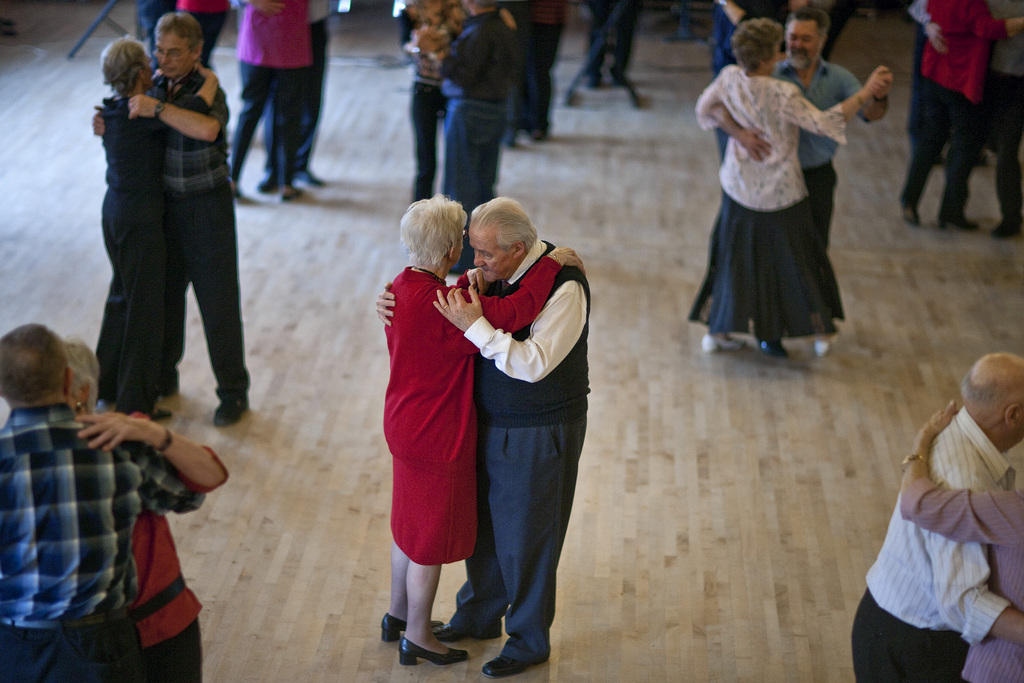Investing in the elderly

For Yvonne Gilli of the Swiss Green Party, the biggest challenge related to the ageing of the population “will clearly be the costs”. She believes that reform of the pension system is needed. “We have to guarantee that elderly people have a decent income.”
At the same time, the high costs of morbidity in elderly people will have to be borne by the healthcare system, says Gilli, who studied both nursing and medicine and works as a physician in canton St. Gallen.
But Switzerland’s system of federalism, which gives much authority to the cantons, makes it “much more difficult to coordinate the pensions, as well as the costs of and investments in the healthcare system,” she says.

More
Swiss politicians tackle the issue of ageing
Gilli believes that the pension system should have flexibility. It’s necessary to differentiate between people who perform manual labour – “it’s hard physical work, people age earlier, and they earn less” – and people who have desk jobs, she says.
The labour market has to be flexible as well, says Gilli, in terms of valuing and hiring older employees. “If the labour market still continues working like today, it’s more and more difficult also for well-educated people to keep working, because experience is not really acknowledged as a value.”
Gilli believes that “financing can only be guaranteed by solidarity in the society, which needs all different people and groups”.
The ageing of society will affect everyone in Switzerland, and will require concessions and compromise. “In 20 years it’s going to be a different situation for all of us, and we’re going to have to finance it,” Gilli says. “The question is how.”
“Where do you see yourself at age 75?”
Yvonne Gilli: “Certainly not in an [old people’s] home. I think that’s a typical answer from my generation. If you suffer from a severe dementia, for example, then you will have to be looked after in an institution. But in most cases, a 75-year-old woman will have autonomy and will really value this autonomy and will stay at home, but probably in a mixed society with young, middle-aged and aged people.”
And yet: “My mother-in-law is over 90, and still at home. That’s actually what everyone says they want, but it’s not so nice to be that old. You’re totally alone. All your friends have died. And your children and grandchildren are busy with their lives. The losses you experience as a result of living such a long life are dramatic.”

In compliance with the JTI standards
More: SWI swissinfo.ch certified by the Journalism Trust Initiative









You can find an overview of ongoing debates with our journalists here . Please join us!
If you want to start a conversation about a topic raised in this article or want to report factual errors, email us at english@swissinfo.ch.